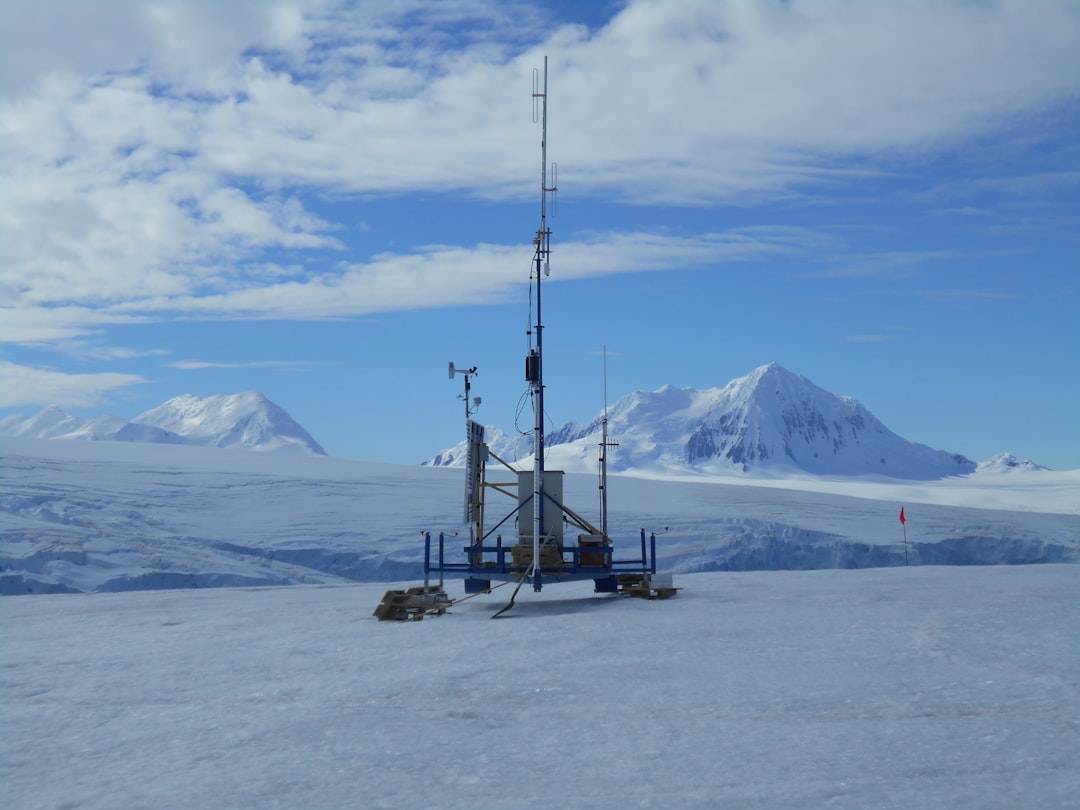The geopolitical landscape surrounding Antarctica has evolved dramatically in recent years, transforming the icy continent into a focal point of international interest and competition. As nations grapple with the implications of climate change, resource scarcity, and technological advancement, Antarctica has emerged as a battleground for technological supremacy. The race for Antarctic technology is not merely about scientific exploration; it encompasses a broader struggle for influence, economic gain, and strategic positioning among global powers.
The continent’s unique environment offers both challenges and opportunities, prompting countries to invest heavily in research and development initiatives aimed at harnessing its potential. In this context, the stakes are high. Nations are increasingly aware that advancements in technology can lead to significant advantages in resource extraction, military strategy, and environmental research.
As such, the geopolitical battle for Antarctic tech is not just a matter of scientific curiosity; it is intertwined with national interests and global power dynamics. The quest for technological innovation in Antarctica reflects a complex interplay of cooperation and competition, where countries must navigate international treaties, environmental concerns, and the pressing need for sustainable practices. This article delves into the multifaceted aspects of this geopolitical struggle, exploring the various dimensions that shape the future of technology in Antarctica.
Key Takeaways
- Antarctica is a focal point for geopolitical competition driven by technological advancements.
- Resource extraction technologies are central to the race for Antarctic natural resources.
- Military and strategic interests heavily influence the development of Antarctic technology.
- International agreements play a crucial role in regulating technological activities on the continent.
- Private companies and superpowers significantly shape the future of Antarctic technological innovation.
The Race for Resource Extraction in Antarctica
Antarctica is believed to harbor vast reserves of untapped natural resources, including minerals, oil, and gas. The allure of these resources has sparked intense interest from various nations, each eager to stake their claim in this pristine yet potentially lucrative territory. The race for resource extraction is not without its challenges; the Antarctic Treaty System, established in 1961, prohibits mineral mining and emphasizes the importance of preserving the continent for peaceful purposes and scientific research.
However, as global demand for resources continues to rise, some countries are advocating for a reevaluation of these agreements. The technological advancements necessary for resource extraction in such a harsh environment are significant. Innovations in drilling techniques, remote sensing technologies, and sustainable practices are essential for any future endeavors in this realm.
Countries that invest in developing these technologies may gain a competitive edge in the race for resources. Moreover, the potential economic benefits of resource extraction could reshape national economies and alter geopolitical alliances. As nations weigh the risks and rewards of pursuing these resources, the balance between environmental stewardship and economic ambition remains a contentious issue.
Military and Strategic Importance of Antarctic Technology

The strategic significance of Antarctica extends beyond its natural resources; it also encompasses military considerations. As nations enhance their technological capabilities in the region, they are increasingly aware of the potential for military applications. The development of advanced surveillance systems, communication networks, and logistical support technologies can provide countries with a strategic advantage in monitoring activities within and around Antarctica.
This military dimension adds another layer to the geopolitical battle for Antarctic tech. Furthermore, the presence of military assets in Antarctica raises concerns about territorial disputes and potential conflicts. Countries with established research stations may seek to bolster their military presence under the guise of scientific exploration.
The dual-use nature of many technologies developed for research purposes can blur the lines between civilian and military applications, complicating international relations. As nations navigate this delicate balance, the implications of military advancements in Antarctica will undoubtedly shape future geopolitical dynamics.
Environmental and Climate Change Research in Antarctica
| Research Area | Key Metrics | Recent Findings | Impact on Climate Science |
|---|---|---|---|
| Ice Sheet Dynamics |
|
Accelerated melting linked to ocean warming | Improves sea-level rise projections |
| Atmospheric Studies |
|
Ozone recovery observed, but variability remains | Informs global atmospheric chemistry models |
| Marine Ecosystems |
|
Shifts in species distribution and food web dynamics | Highlights vulnerability of Antarctic biodiversity |
| Permafrost and Soil Studies |
|
Enhanced greenhouse gas emissions from thawing soils | Contributes to feedback loops in climate models |
Antarctica plays a crucial role in global climate systems, making it an essential site for environmental research. Scientists from around the world flock to the continent to study its glaciers, ice sheets, and ecosystems, seeking to understand the impacts of climate change on a global scale. Technological advancements have revolutionized research methodologies, enabling scientists to collect data more efficiently and accurately than ever before.
Remote sensing technologies, autonomous drones, and advanced modeling software have all contributed to a deeper understanding of Antarctica’s complex environment. The findings from Antarctic research have far-reaching implications for global climate policy and environmental conservation efforts. As nations grapple with the consequences of climate change, the insights gained from Antarctic studies can inform strategies for mitigation and adaptation.
However, the race for technological advancement in this field is not without its ethical dilemmas. Balancing scientific exploration with environmental protection remains a challenge as countries strive to develop technologies that minimize their ecological footprint while maximizing research output.
The Role of International Agreements in Antarctic Technology
International agreements play a pivotal role in shaping the landscape of technological development in Antarctica. The Antarctic Treaty System serves as a framework for cooperation among nations, emphasizing peaceful scientific collaboration while prohibiting military activity and mineral mining. This legal structure has fostered an environment where countries can share knowledge and resources, leading to significant advancements in Antarctic technology.
However, as geopolitical tensions rise and national interests become more pronounced, questions arise about the effectiveness of these agreements. Some nations may seek to exploit loopholes or push for amendments that favor their interests, potentially undermining the collaborative spirit that has characterized Antarctic governance thus far. The challenge lies in maintaining a balance between national sovereignty and collective responsibility for preserving one of the planet’s last untouched frontiers.
Antarctic Tourism and the Demand for Technological Advancements

Antarctic tourism has seen a surge in popularity over recent years, driven by a growing interest in adventure travel and unique experiences. This influx of tourists presents both opportunities and challenges for technological development in the region. On one hand, advancements in transportation technology have made it easier for travelers to access remote areas of Antarctica, leading to increased economic activity and funding for research initiatives.
On the other hand, the environmental impact of tourism raises concerns about sustainability and conservation. To address these challenges, there is a pressing need for innovative technologies that can enhance safety while minimizing ecological footprints. From eco-friendly vessels to advanced waste management systems, the tourism industry must adapt to ensure that it does not compromise the fragile Antarctic environment.
As countries invest in developing these technologies, they must also consider how to balance economic benefits with environmental stewardship.
Challenges and Risks of Developing Technology in Antarctica
Developing technology in Antarctica is fraught with challenges that stem from its extreme environment. Harsh weather conditions, logistical difficulties, and limited infrastructure pose significant obstacles to researchers and companies alike. The remoteness of the continent complicates supply chains and increases costs associated with transporting equipment and personnel.
Moreover, any technological failures can have dire consequences given the harsh realities of life on the ice. Additionally, ethical considerations come into play when developing technology in such a pristine environment. The potential for environmental degradation must be weighed against the benefits of technological advancement.
Balancing innovation with responsibility is crucial as nations seek to push the boundaries of what is possible in this challenging landscape.
The Role of Private Companies in Antarctic Technological Development
Private companies are increasingly playing a significant role in Antarctic technological development, driven by both profit motives and a desire to contribute to scientific progress. These entities bring expertise from various sectors—such as aerospace, telecommunications, and renewable energy—into the realm of Antarctic research. Their involvement can accelerate innovation by providing funding and resources that may not be available through traditional government channels.
However, this trend raises questions about commercialization and its impact on scientific integrity. The motivations of private companies may not always align with those of researchers or policymakers focused on environmental preservation. Striking a balance between private interests and public good is essential to ensure that technological advancements benefit both scientific inquiry and global sustainability efforts.
The Influence of Superpowers in Antarctic Technological Advancements
Superpowers wield considerable influence over technological advancements in Antarctica due to their economic resources and geopolitical clout. Countries like the United States, Russia, and China have made significant investments in research stations and technological infrastructure on the continent. Their presence not only shapes scientific exploration but also reflects broader strategic interests in asserting dominance over emerging technologies.
As these superpowers vie for influence in Antarctica, their actions can have ripple effects on international relations. Collaborative efforts may be undermined by competitive posturing or territorial claims that threaten existing agreements. The interplay between cooperation and competition among superpowers will be critical in determining how technological advancements unfold in this unique geopolitical landscape.
The Potential for Scientific Discoveries and Breakthroughs in Antarctic Technology
The potential for scientific discoveries stemming from advancements in Antarctic technology is immense. As researchers develop new tools and methodologies for studying the continent’s ecosystems and climate systems, they stand on the brink of groundbreaking findings that could reshape our understanding of Earth’s processes. Innovations such as artificial intelligence-driven data analysis or advanced climate modeling could yield insights into climate change patterns that extend far beyond Antarctica itself.
Moreover, breakthroughs achieved through Antarctic research may have practical applications across various fields—from medicine to renewable energy—demonstrating how investments in technology can yield benefits that resonate globally. As nations continue to prioritize technological development in Antarctica, they must remain cognizant of the broader implications of their discoveries on humanity’s collective future.
The Future of Antarctic Technology and its Implications for Global Geopolitics
The future of Antarctic technology is poised at a crossroads where innovation meets geopolitics. As nations navigate their interests within this unique environment, they must grapple with questions about sustainability, collaboration, and competition. The ongoing race for technological supremacy will likely intensify as global challenges such as climate change demand urgent solutions.
In this evolving landscape, international cooperation will be essential to ensure that advancements benefit not only individual nations but also humanity as a whole. The lessons learned from Antarctic research can inform global policies aimed at addressing pressing issues like climate change while fostering an environment where scientific inquiry thrives free from geopolitical tensions. Ultimately, how nations choose to engage with Antarctica will shape not only their own futures but also the trajectory of global geopolitics for generations to come.
The ongoing geopolitical tensions surrounding Antarctic technology have sparked significant interest among researchers and policymakers alike. A related article that delves into the implications of these developments can be found at
